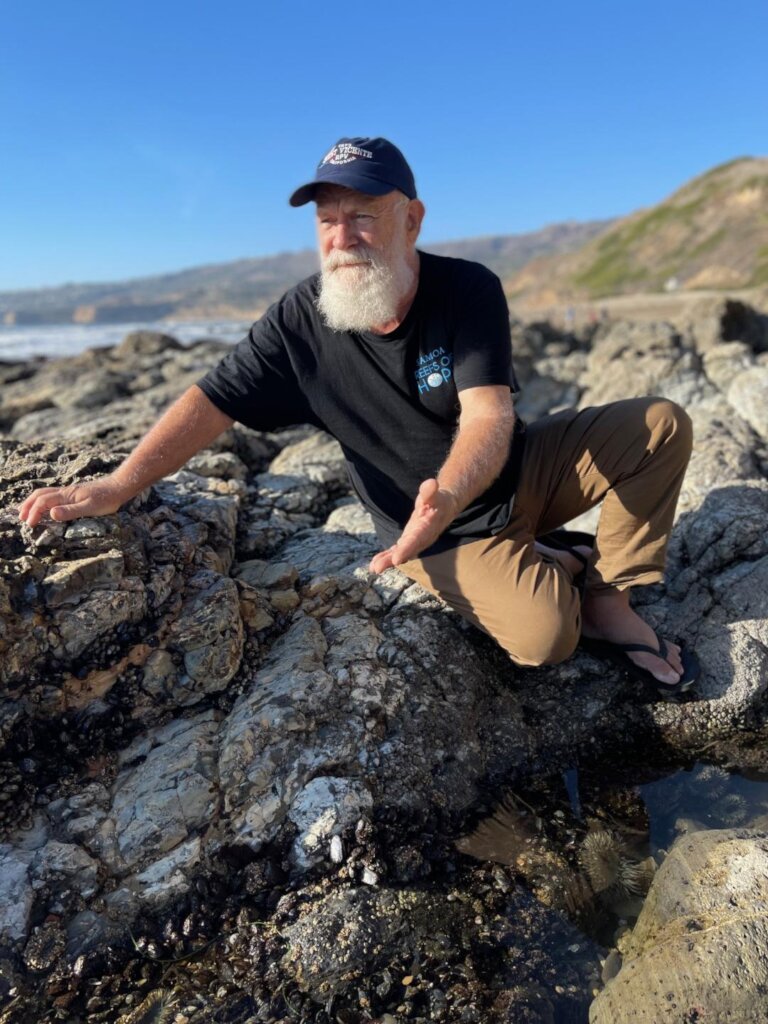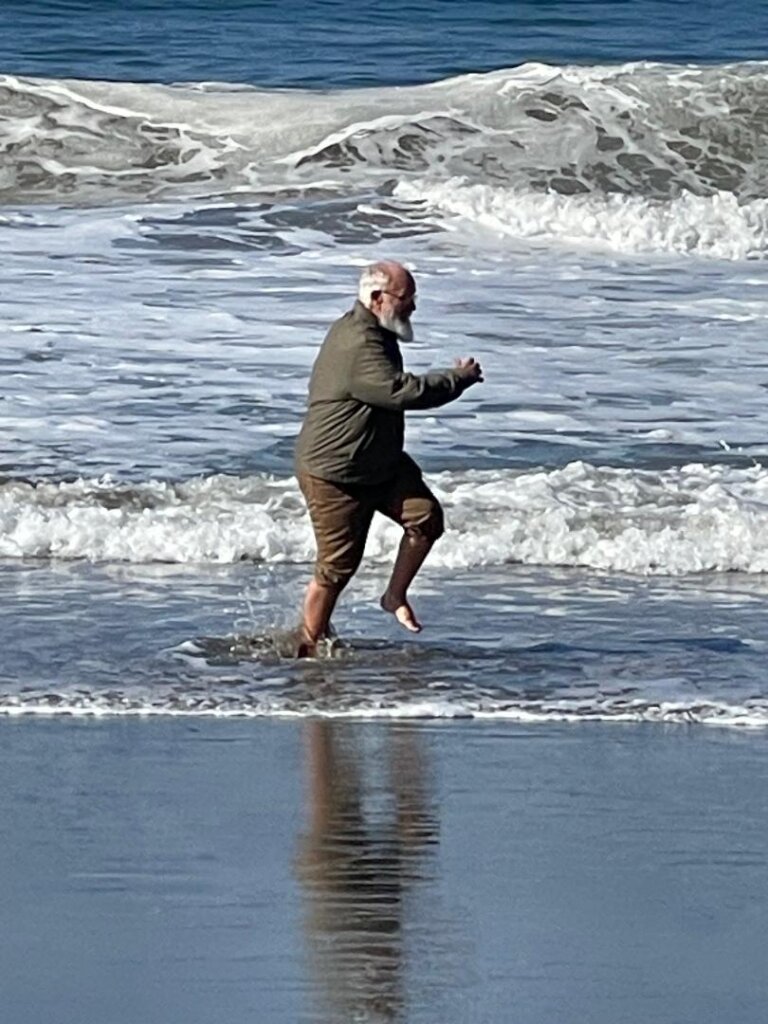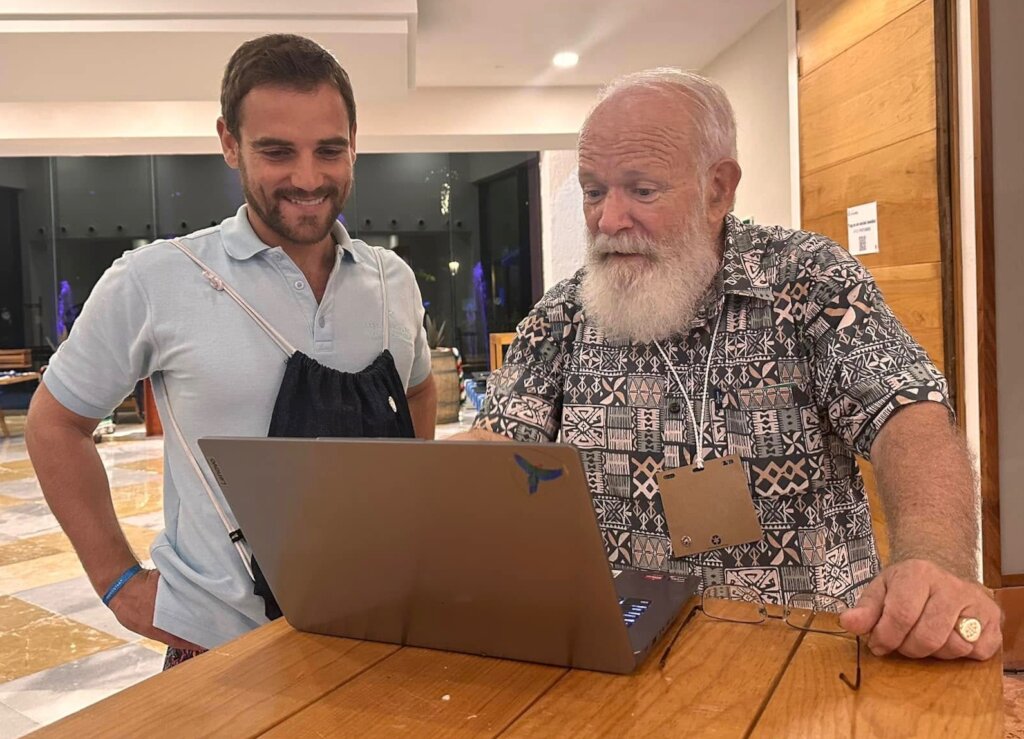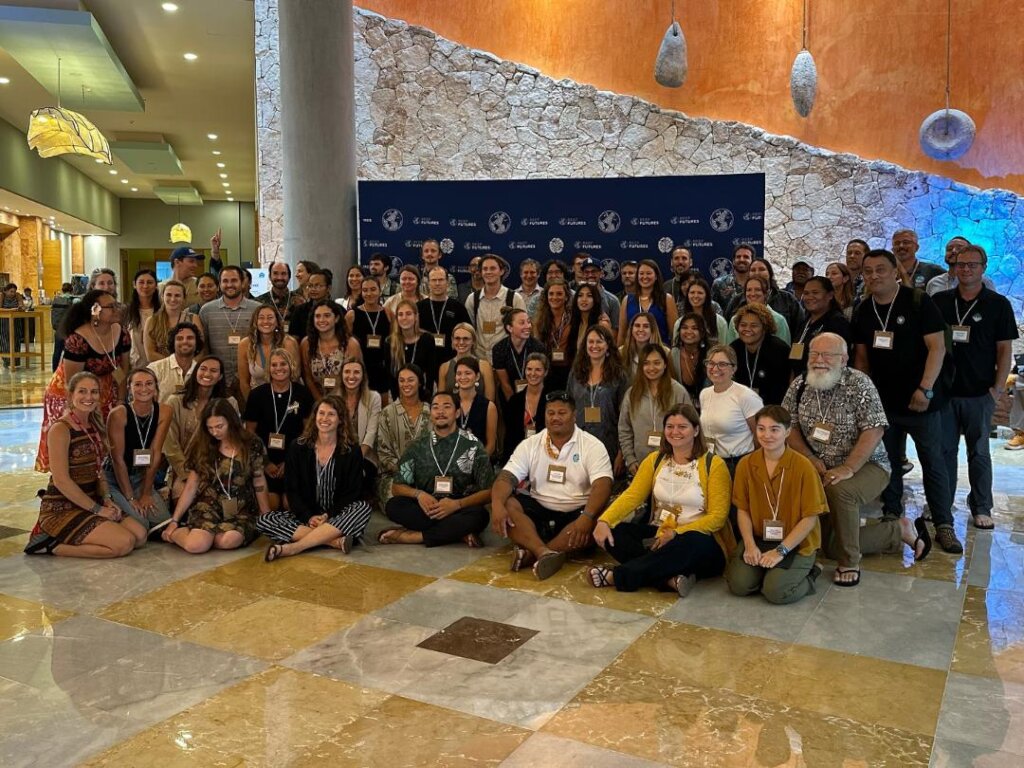Project Report
| Dec 31, 2024
Supercharging Pacific Supercorals Rescue in 2025
![Austin at CA shore: note Samoan Reefs of Hope logo]()
Austin at CA shore: note Samoan Reefs of Hope logo
The Reefs of Hope Pacific Island expansion is set at full speed ahead as 2025 brings opportunities of exponential expansion and partnership with more Pacific island nations and in the Caribbean and Indian Oceans. Many of these islands had primordial age reefs of impressive size and diversity. Healthy reefs are becoming increasingly rare as two back to back hot years 2023 and 2024 took many more large swaths of these sea jungles, and 2025 looks to be a repeat.
The goal is to create a global movement to save the corals that still remain, but first many have not yet realized that a major change in tactics is required. The plan to save the corals is called "Reefs of Hope," which is the first coral-focused adaptation plan ever devised to be endorsed by UNESCO.
To encompass more island nations into the astounding shared science agreement which is based on methods developed by Corals for Conservation's lead scientist with more than 30 years of keen reef observation and field testing, formal agreements are being signed. This step assures accountability and helps strengthen the network so that all parties benefit from newest developments and best emergency methods during extreme heat events. The formal agreements also serve to bind together in cooperative ways Fisheries Ministries and coastal tribal ancestral stewards of the reefs.
By way of introduction: Here's the brief history of Austin Bowden-Kerby's kinship with corals and his personal journey of dedication to sparing corals--much of this work, especially in the beginning was visionary. For the benefit of us all on planet earth, his intuitive insight still keeps his work ahead of what's predicted and this spring-before-told-to-jump nature is an advantage. The advance of Global Warming has defied predictions: it's like dumping puzzle pieces on the table. Austin is one who can see connections between the colored pieces; the scramble of deviant edges fit together in his mind. Austin connects loss of keystone coral species which attract spawn with scent to other variants like shifts in predators, types of algae, currents, influences of direct sunlight or observed cooling in the aftermath of cyclones. Nancy Clark: GG Project LeaderAs a young man who was introduced to Fijian corals, Austin was enchanted by the beauty and the pulsation of a living sea system. "I only started in earnest with the corals in about 1989 or 1990 in Pohnpei. I began to search for a PhD program and in May 1992 I ended sitting beside a PhD student on a long flight, and he convinced me that I needed to study at UPR, where conditions were ideal, and where corals needed help. Our family of six arrived in Puerto Rico the summer of 1993, and I started the first Caribbean coral restoration work in 1994." For the December 2024 Reef Futures Conference held in Cancun, Mexico, I was one of many keynote speakers. Also Duke Addleman's COP28 film was shown. https://www.youtube.com/watch?v=7SSQE0x6nSM&list=PLK61vVmzVGti-4Anw9jVx2SYaMI_A1a0a&index=23
I'm pictured showing Felix from Jamaica how to use Google Earth satellite photos to find the ideal nursery sites. It is possible to identify reef sweet spots sites by using various shades of blue, and the presence of protective reef structures adjacent to wave action. Then the next day, I taught 25 from Belize, Colombia, Mexico and that Caribbean region the same skills in an impromptu workshop." Austin
Austin, the noted original pioneer of 30 years for coral restoration and preservation, was a keynote speaker at the recent Reef Futures Conference in Mexico. His updated message was enthusiastically embraced: 500 new people read his ocean paper in the wake of this gathering of like-minded dedicated coral scientists. Key points covered as follows:
1. With the rapid upswing in ocean temperatures, we have reached the endgame for corals, and so what worked for two decades no longer does.
2. We must now turn our attention to the very place where heat-adapted corals evolved: to the extreme shallows, the shallow "hot tub" layer where the waters become super hot at low tide, and where the corals are sometimes exposed to the air. These corals, where they still survive, represent the most heat-adapted corals in nature; however, temperatures are now becoming lethal in this zone.
3. Our focus now must be Facilitated Adaptation and Recovery which is the key thrust of the Reefs of Hope strategy- the first and only coral-focused plan endorsed by the United Nation's Decade of Ocean Science.
4. Our work creates dense coral recovery patches which restore coral reproduction and supercharge the natural recovery of the wider reef ecosystem, creating irrestible settlement signals that attract coral and fish larvae and encourage them to settle within the recovery patch and nearby.
5. As ocean temperatures rise, we need massive and unified action! Working together with governments, NGOs, resorts, and communities, we are working to create a Reefs of Hope global network which will hopefully buy at least two more decades for the corals, enabling us to preserve our precious coral diversity in spite of the firestorm called Global Warming!
In 2025, all over the Pacific using the Reefs of Hope model, countries will be fine-tuning their plans and supercharging coral reef rescue utilizing natural processes for a positive and faster effect on a larger marine area. A partial list of those countries where the work is already in progress includes these island nations: Tuvalu, Vanuatu, Samoa, Papua New Guinea, Fiji with new nurseries established in the BULA area, and also plans to help again in Kiribati.
Every gift exponentially expands the critical work of relocating and saving corals.
It's no longer a doomsday prognosis for the health of coral reefs thanks to all of our caring donors! Happy 2025 ahead as our work to save a keystone ecosystem speeds up.
Vinaka, sincere thanks and Happy New Year 2025,
Austin and the C4C team.
![Austin racing to save corals: photo by Addleman CA]()
Austin racing to save corals: photo by Addleman CA
![Austin shows Felix Google Earth satellite search]()
Austin shows Felix Google Earth satellite search
![Austin at Reef Futures Conference in Cancun]()
Austin at Reef Futures Conference in Cancun
![Share on Twitter]()
![Share on Facebook]()



